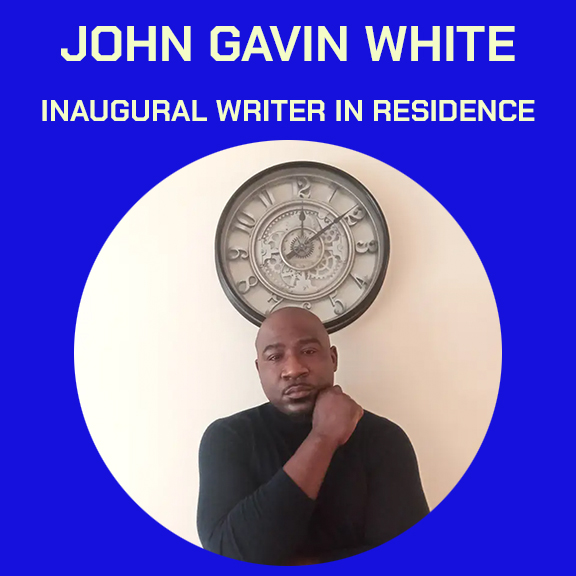
We are proud to announce that John Gavin White is the inaugural Writer in Residence for the Paul Robeson Galleries at Express Newark. White is a Newark based writer and he has been part of the creative community since 1999. He is a poet and essayist whose writings combine philosophy, narrative, lyric, and metaphor to explore the historical erasure of black male vulnerability against the backdrop of oppression.
While in residence White has said that he will be working on his manuscript “Big Black Good Man.” Of this project, White states, “Drawing inspiration from writer Richard Wright’s short story of the same name, my project is part poetry, part essay and will exist at the parlous intersection of the poetic as a lived philosophy, and the radicalized notion of black male self-recovery. The poetic is a philosophy that frames any attempt at the unified treatment of emotion, logic, language and thought against the backdrop of oppression. When this is undertaken by black men, I conceptualize this as “black male self-recovery,” which, with personal narrative at the center, is the interrogation of the historical erasure of black male vulnerability against the backdrop of oppression. I contend that such treatment is the truest mark of intelligence. By necessity the unified treatment has to go beyond mere analysis. Articulated as a source of therapy, in tandem with analysis, the poetic is the philosophical upshot of the poet Amiri Baraka’s belief that a poem’s form should follow the shape determined by the poet’s own breath and intensity of feeling. I will utilize several public platforms during my residency to further conceptualize and articulate this feeling, through poetry and philosophical prose, for not only Rutgers but the greater Newark community. Whether group discussion, lecture, public talk or reading, my work will signify the poetic force that undergirds black speculative vision and practice. I will give multidimensional expression to both blackness and masculinity, in order to render meaning to a humanity unrealized or unfulfilled.”